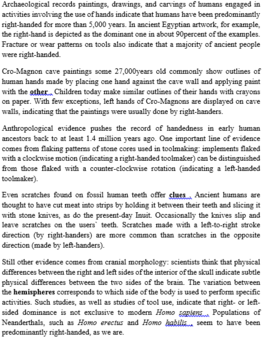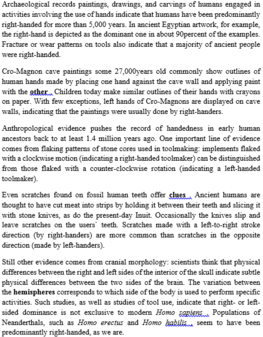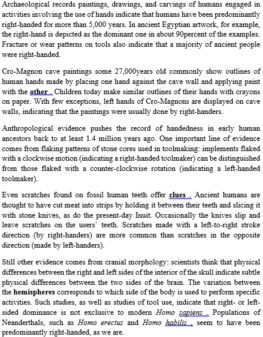Read the following passage and mark the letter A, B, C, or D on your answer sheet to indicate the correct answer to each of the questions from 36 to 43.
The difference between the nuclear family and the extended family is that a nuclear family refers to a single basic family unit of parents and their children, whereas the extended family refers to their relatives such as grandparents, in-laws, aunts and uncles, etc. In many cultures, and particularly indigenous societies, the latter is the most common basic form of social organization.
A nuclear family is limited, according to Kristy Jackson of Colorado State University, to one or two parents (e.g. a father and mother) and their own child, or children, living together in a single house or other dwellings. In anthropology, they only must be related in this fashion; there is no upper or lower limit on the number of children in a nuclear family.
The extended family is a much more nebulous term, but in essence refers to kin or relations not covered by the above definition. In historical Europe and Asia as well as in Middle Eastern, African, and South American Aboriginal cultures, extended family groups were typically the most basic unit of social organization, The term can differ in specific cultural settings, but generally includes people related in age or by lineage.
Anthropologically, the term "extended family" refers to such a group living together in a household, often with three generations living together (grandparents, parents, and children) and headed in patriarchal societies by the eldest man or by some other chosen leadership figure. However, in common parlance, the term "extended family" is often used by people simply to refer to their cousins, aunts, uncles, and so on, even though they are not living together in a single group.
Question 40: The word "patriarchal" in paragraph 4 is closest in meaning to _____.
A. ruled or controlled by men
B. equal for both men and women
C. simple with no rules and laws
D. modern with advanced facilities






Đáp án A
Từ “patriarchal” trong đoạn văn 4 gần nghĩa nhất với ___________.
Patriarchal (a): (thuộc về) gia trưởng
A. cai trị hoặc kiểm soát bởi nam giới B. bình đẳng cho cả nam và nữ
C. đơn giản mà không có quy tắc và luật lệ D. hiện đại với tiện nghi cao cấp